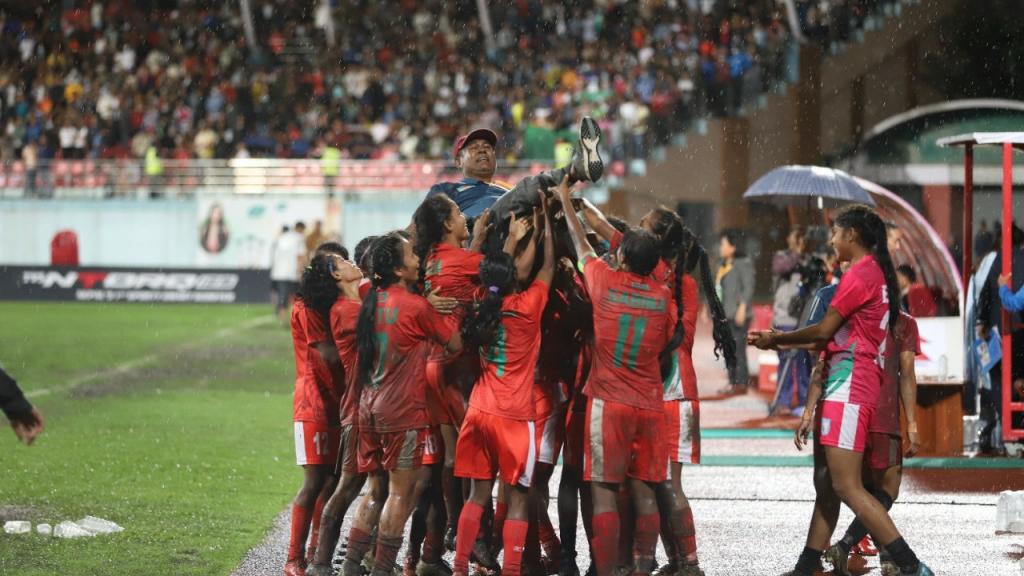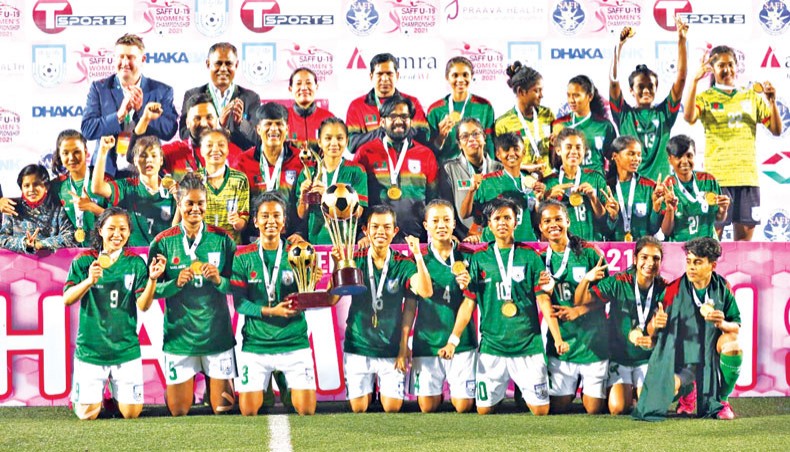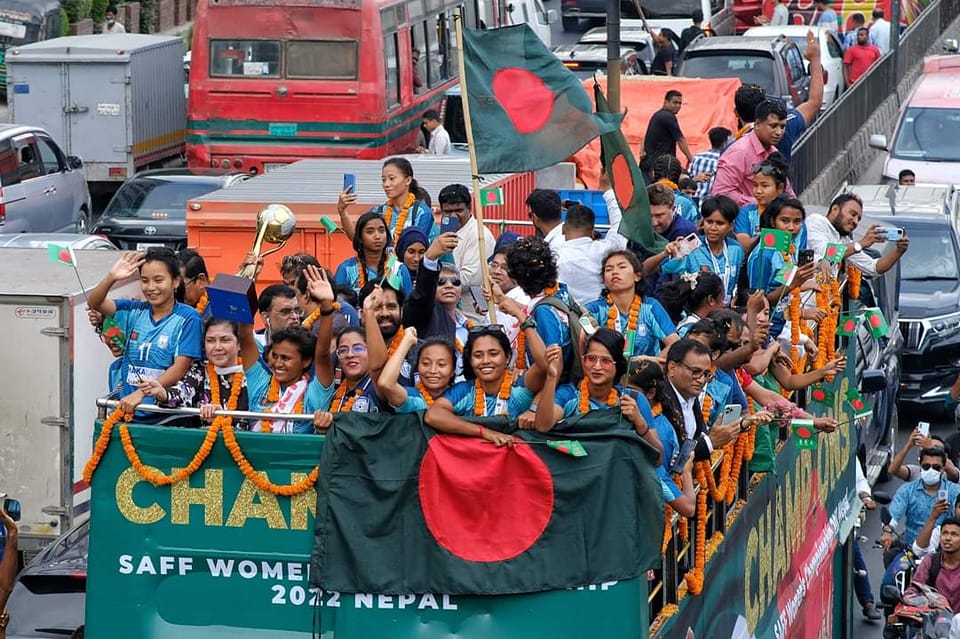SAFF Women’s Championship: Incredible Bangladeshi Women and Their Journey Throughout the Years

Despite Bangladesh’s national squad having a dismal history throughout the years, the sport has always been tremendously popular in the nation. However, the incredible women of the Bangladesh Women’s team attempted to buck that trend by securing Bangladesh’s first SAFF Women’s Championship trophy.
Public views on women’s sports
It is no secret that women’s sports are not viewed in the best possible light in a nation like Bangladesh. Nearly every member of this team, from the players to the coaching staff, has endured jeers of some sort. Golam Rabbani Choton, the coach of the women’s national team, talked about how people would make fun of him for being the team’s coach in a press conference after the final:
“It is not my success alone; we have come here with the collective cooperation of everyone. The thing to say today is that when I took over as the coach of the women’s team, even my friends used to call me ‘the women’s coach.’ When I walked down the street, I was called ‘the lady coach.’ They used to mock me like this. I didn’t think about it. I loved my work.”

Similar feelings were unquestionably magnified for the team’s actual players. The top scorer in this tournament, Sabina Khatun, spoke to Daily Star in 2019 about some of those struggles:
“I have been a part of the women’s football team since 2004. Back then, people raised questions about our sportswear and our purpose of playing a male-dominated sport. In 2005, our under-17 girls’ team qualified for the AFC Women’s Championship in South Korea. Still, people underestimated the capability of the women’s soccer team, but their condescension motivated me to excel.”
Yet, given the status of society as a whole, the amount of patience these women have displayed is exceptionally admirable. Not to add the extraordinary professionalism shown to not only take home a prize for the country but to accomplish it successfully.
The Journey to Victory
The Bangladeshi women dominated the tournament, which included former champions and teams ranked higher than them. Bangladesh began the tournament with a 3-0 win over the Maldives before humiliating Pakistan 6-0. However, the result against 58th-ranked India could be interpreted as a foreshadowing of the future. Bangladesh ranked 147th and defeated India 3-0 to secure a place in the semi-finals.
In the semi-finals, the Bangladeshi women annihilated Bhutan with eight goals, extending their incredible run.
Surprisingly, the team had not conceded a single goal until the tournament’s final match. Despite conceding the first goal in the final against hosts Nepal, the tigresses responded with three of their own to secure Bangladesh’s first SAFF Women’s Championship trophy.

Sabina Khatun won the best player award after scoring eight goals in the tournament, while Rupna Chakma won the best goalkeeper award after conceding only one goal throughout the tournament.
Where do women’s sports go from here?
Women’s teams in Bangladesh have repeatedly demonstrated their worth far beyond the apparent value their respective boards and the general public assigned to them. Whether it’s the women’s cricket or football teams, despite their success, they do not receive adequate coverage or recognition. As the success train continues on its path, public opinion will hopefully continue to shift.
Several people have already called for a bus parade for the SAFF Women’s Champions, and the intensity of the public’s voice appears to have made that dream a reality. This only emphasises the importance of public support for women’s sports in order for the sector to truly thrive and reach its full potential.

Concluding Thoughts
The people have long wished for their national teams to succeed in international competitions. But unfortunately, the men’s teams repeatedly failed to capitalise on the tremendous support-the women did not. As a result, Bangladesh Women’s National Football Team not only won an international trophy, but they did so with devastating efficiency, which was no accident.
The success story necessitates a significant improvement in how the board treats these ladies regarding facilities and other systemic issues that need to be looked into. Furthermore, increased support is the least we can do as a nation to empower and nurture future Sabina Khatun generations.
Follow The Interlude for more.





